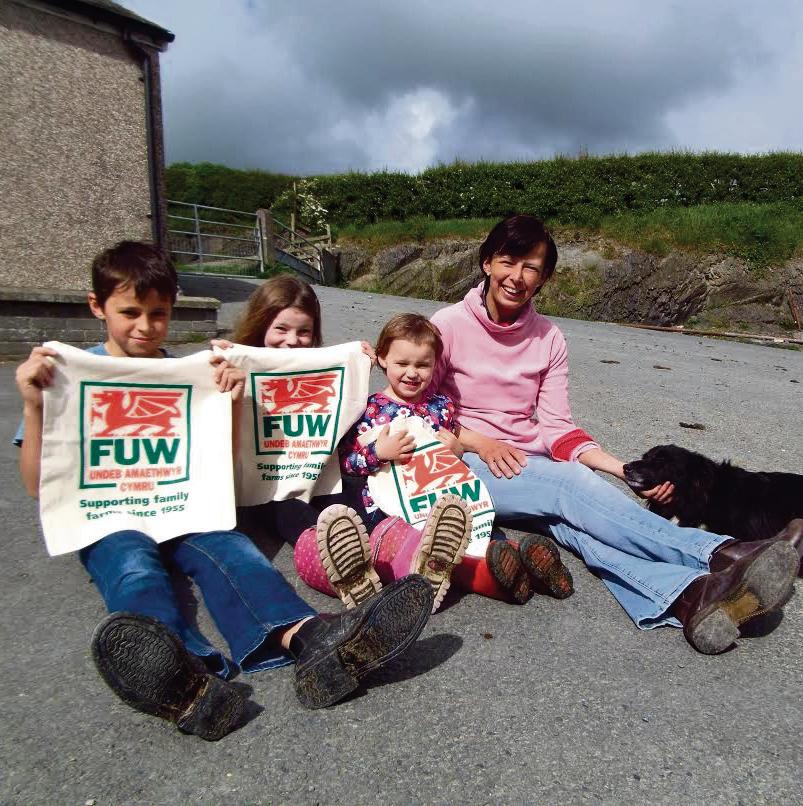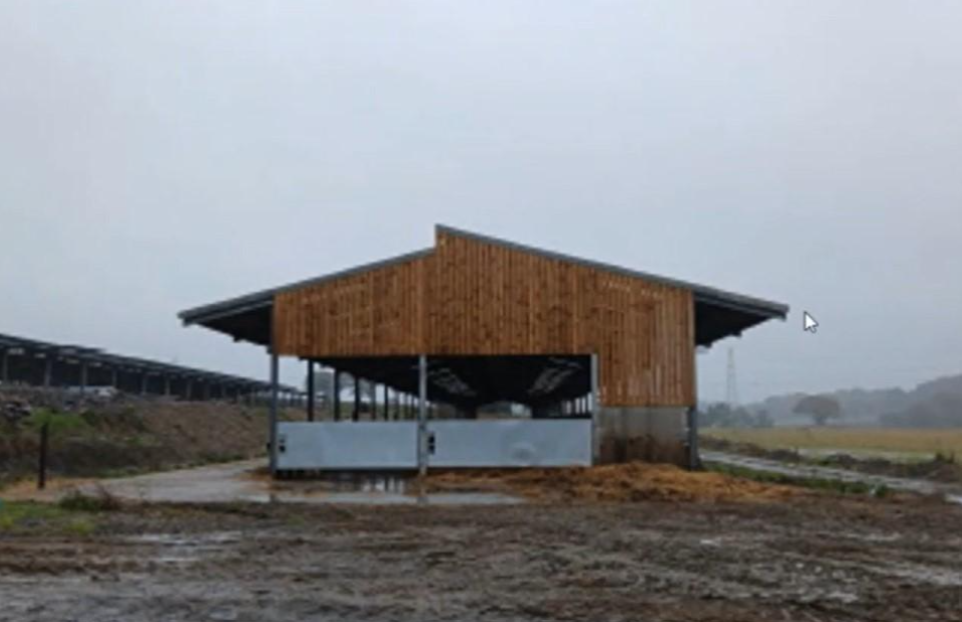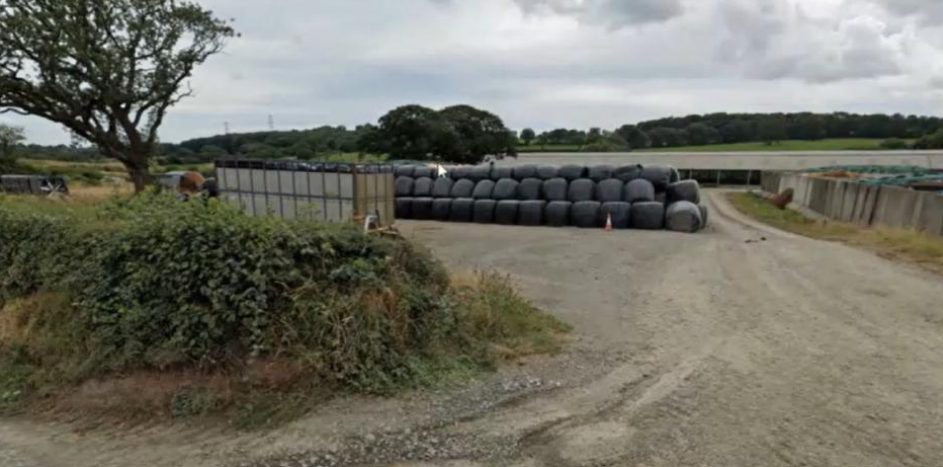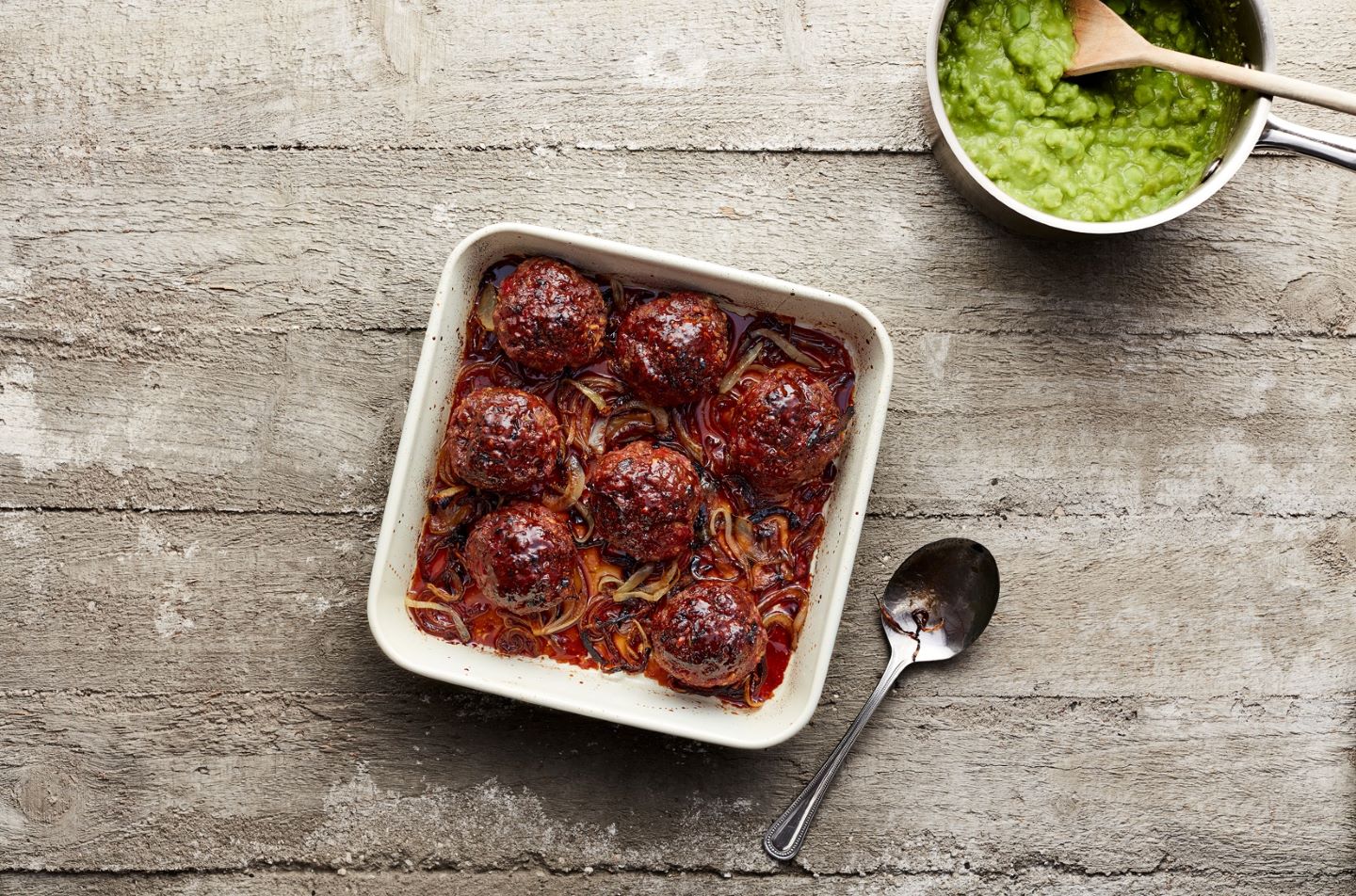Farming
New European policies ‘must have family farms at heart’

ANY NEW policies adopted by the EU Parliament following yesterday’s elections must ensure they have family farms at their heart, according to Farmers’ Union of Wales president Emyr Jones.
by the EU Parliament following yesterday’s elections must ensure they have family farms at their heart, according to Farmers’ Union of Wales president Emyr Jones.
Speaking on the eve of last weekend’s Royal Welsh Spring Festival, Mr Jones said that between May 22 and 25 people across the EU will elect 751 Members of the European Parliament (MEPs) who, alongside the Council of Ministers and the European Commission, will decide policies affecting our daily lives, more so for farmers than any other section of the community. Mr Jones was launching the FUW’s latest campaign “Supporting Family Farms Since 1955” that coincides with this year’s UN International Year of Family Farming which is highlighting the potential family farmers have to eradicate hunger, preserve natural resources and promote sustainable development. He added: “Given the diversity of climates, topography, cultures and economies across the EU, it is no surprise that even the most pro- Europeans can become frustrated with Brussels dictates which make no sense in a region such as Wales, while those bitterly opposed to the EU have a field day blaming all the ills of the world on our membership. “Yet, despite the focus in the UK press on the issue of EU membership and where the balance of powers between Member States and Brussels should lie, reporting of the daily deliberations of the EU Parliament regarding issues which we might support, or bitterly oppose, remains scant at the most. “This leaves members of the general public detached from the politics and policies they so often bemoan, allowing pro and anti-EU politicians to blame the EU whenever it suits their agendas to do so, and Governments to hide their own insatiable appetites for red tape behind the convenient scapegoat of EU Regulations. “With agriculture taking the most significant portion of the European budget, and bearing the brunt of so many disproportionate and costly regulations, Wales’ farmers must consider carefully the implications of all the options now being discussed.” Those options are: to allow the EU to continue on its present course, which many believe will lead to a United States of Europe; to try and restore it to something more akin to the Common Market we voted to remain a part of in 1975; or to pull out altogether, leading to a full restoration of sovereignty but with no guaranteed access to our most important markets and the common agricultural policies which are part and parcel of that access. “The FUW’s current position is simply that we support EU membership – hardly surprising given that successive UK Governments have made it clear that they wish to increase food imports from outside the EU and dismantle the CAP – a policy which provides essential incomes for Welsh farming families and ensures plentiful, safe and affordable food for EU citizens,” said Mr Jones. “And, of course, we need only look back to the 2001 FMD outbreak and the accompanying export ban to see the impact that being closed out of the common market has on prices. “However, Welsh farmers have much to be aggrieved about when it comes to the suffocating and costly bureaucracy that emanates from the EU, and many wish for a return to the halcyon days when food production and common sense took priority over paperwork and illogical rules. “Whatever our views, we must weigh up the implications of all options with our heads as well our hearts. Welsh agriculture and our rural communities currently rely on the CAP and access to EU markets, and those who wish to see us operating outside the EU must provide valid economic assessments and policies which set out how a collapse in rural incomes and food production would be avoided. “We must also be aware that a renegotiation of powers could centre on the renationalisation of agricultural policies, with the focus not on reducing burdensome EU Regulations, but on implementing key recommendations from the 2005 Treasury/Defra ‘Vision for the CAP’ – a blueprint for dismantling agricultural support and increasing food imports. “Again, we need solid proposals and assurances that any renationalisation of powers will not lead to the collapse of Welsh agriculture and rural incomes. “Those assessments, analyses and policies must have at the heart of them the Welsh family farm: farms which have the highest productivity per hectare, are responsible for the overwhelming majority of Welsh food production and form the backbone of our rural communities.”
Business
Langdon Mill Farm Pembrokeshire expansion signed off

THE FINAL sign-off for plans for a heifer accommodation building and associated works at one of Pembrokeshire’s largest dairy farms, with a milking herd of 2,000 cows, have been given the go-ahead.
In an application backed by councillors at the December meeting of Pembrokeshire County Council’s planning committee, Hugh James of Langdon Mill Farms Ltd sought permission for a 160-metre-long heifer accommodation building, a slurry separation/dewatering building and associated yard areas at 1,215-hectare Langdon Mill Farm, near Jeffreyston, Kilgetty.
A supporting statement through agent Reading Agricultural Consultants said: “The holding currently has a milking herd of approximately 2,000 cows, which are housed indoors for the majority of the year, with dry cows and heifers grazed outdoors when weather and soil conditions permit.

“There has been significant investment in buildings and infrastructure at the farm over the last decade in respect of cattle accommodation, slurry storage, milking facilities, Anaerobic Digestion (AD) plant, feed storage. Recently a calf and weaned calf accommodation buildings were approved by Pembrokeshire County Council with construction almost complete.
“The unit is efficient, achieving yields of more than 10,000 litres/cow/year, with cows being milked three times/day in the 60-point rotary parlour. Langdon Mill Farm currently directly employs 21 full-time, and three part-time staff. Of these, four live on site in the two dwellings opposite the farm, with the remaining staff living in the locality.”
It added: “Although the unit has previously purchased heifers to aid expansion, the farm now breeds most of its own replacements to improve genetics and to minimise the ongoing threat of bovine tuberculosis (bTB).”
It said the proposed building would be used by heifers between the ages of 7-22 months, the siting “directly influenced by the adjacent calf and weaned calf buildings, with livestock being moved from one building to the next as they get older”.
Members unanimously supported the recommendation of approval, giving delegated powers to the interim head of planning to approve the application following the final approval of a habitats regulations assessment.
An officer report published yesterday, February 5, said Natural Resources Wales confirmed it had received the assessment, and, “in consideration of the mitigation measures detailed and on the understanding there is no increase in stock, they agree with the LPA’s conclusion that an adverse effect upon the integrity of the SAC [Special Areas of Conservation] sites can be ruled out”.
Formal delegated approval has now been granted by officers.
Farming
Forgotten meats tipped as future ‘superfood’ comeback

SO-CALLED “forgotten meats” such as liver, heart and kidneys could soon find their way back onto dinner plates, with scientists suggesting they may offer a cheap, sustainable and highly nutritious alternative to modern ultra-processed foods.
Offal was once a staple of everyday diets across the UK, particularly in working-class households, but has steadily fallen out of favour in recent decades despite being rich in iron, protein and essential vitamins.
Now researchers at Aberystwyth University are working with Hybu Cig Cymru (HCC) to understand why demand has dropped and whether these cuts could be repositioned as affordable “superfoods”.
Scientists say that when nutrient-dense parts of the animal go uneaten, valuable food is effectively wasted.
Dr Siân Mackintosh, from the university’s Institute of Biological, Environmental and Rural Sciences (IBERS), said these meats could play an important role in healthier and more sustainable diets.
“Where they are not being used, these nutrient-dense ‘forgotten meats’ represent a significant loss of nutrients from our food chain,” she said. “Incorporating them as part of a balanced diet could support human health while also reducing food waste and improving environmental outcomes.”
Taste tests win over public
To test public attitudes, HCC staff have been running tasting sessions at major agricultural events including the Royal Welsh Show and the Winter Fair in Llanelwedd.
Visitors sampled dishes made with Welsh lamb’s liver, including stroganoff, traditional faggots and pâté. Organisers say many people were surprised by the flavour and keen to learn how to cook them at home.
Dr Eleri Thomas, Future Policy and Project Development Executive at HCC, said interest was stronger than expected.
“We believe there is significant potential for these forgotten meats to be incorporated back into our diets,” she said. “Consumers liked the flavour and wanted recipes and cooking tips, as well as understanding the nutritional value.”
She added that making better use of undervalued cuts could improve sustainability across the meat supply chain while creating new marketing opportunities for Welsh producers.
Part of wider sustainability project
The work forms part of the SMART Nutrient Cymru project, funded through the Welsh Government’s innovation support scheme.
Project lead Dr Christina Marley said the aim is to capture nutrients currently being lost across the agri-food system.
Alongside the collaboration with HCC, the team has also partnered with Dŵr Cymru Welsh Water on land management to protect rivers, and with British Wool to explore new uses for fleece by-products.
IBERS itself is one of eight UK research institutes strategically supported by Biotechnology and Biological Sciences Research Council, providing national expertise in grassland and plant breeding science.
Researchers say that with food prices rising and pressure growing to reduce waste, traditional nose-to-tail eating could offer both economic and environmental benefits.
Image: Welsh lamb faggots (Pic: HCC)
Community
Celebrating nature recovery through Cysylltu Natur 25×25

A CELEBRATION event was held on Saturday, January 24 in Cwm Gwaun to mark the achievements of Pembrokeshire Coast National Park Authority’s Cysylltu Natur 25×25 project, bringing together volunteers, farmers and staff involved in delivering nature restoration across North Pembrokeshire.
The landscape-scale project was funded by the Welsh Government through the Nature Networks Programme, delivered by the Heritage Fund. The Programme aims to strengthen ecological connectivity and resilience by restoring habitats at scale.
Those attending the event heard about the wide range of conservation activity delivered through the project across the north of the National Park. This has included practical works to restore grazing to Rhos pasture to benefit marsh fritillary butterflies and southern damselflies, specialist work to conserve rare lichens, volunteer chough, dormouse and harvest mouse monitoring, safeguarding greater horseshoe bat hibernation sites, and targeted action to tackle invasive species threatening important sites.
Volunteers, farmers, land managers and contractors played a vital role in the success of the project, contributing local knowledge, practical skills and ongoing commitment to caring for Pembrokeshire’s unique landscapes and wildlife in the long term.
Mary Chadwick, Conservation Officer for Pembrokeshire Coast National Park Authority, said: “Cysylltu Natur 25×25 has shown what can be achieved when farmers, volunteers and conservation specialists work together with a shared aim.
“From monitoring some of our most elusive species to restoring and protecting habitats, the dedication of everyone involved has made a real difference for nature across the National Park.”
Although the Cysylltu Natur 25×25 project is now coming to an end, the important work it has supported will continue. Building on its successes, Pembrokeshire Coast National Park Authority will carry this momentum forward through the next phase of nature recovery work under NNF4 Cysylltiadau Naturiol / Naturally Connected, ensuring ongoing protection and enhancement of habitats for future generations.
-

 Crime4 days ago
Crime4 days agoSex offender jailed after living off grid in Pembrokeshire and refusing to register
-

 Health3 days ago
Health3 days agoHealth board targets rise in steroid and gym drug use across west Wales
-

 News6 days ago
News6 days agoPrincess of Wales visits historic Pembrokeshire woollen mill
-

 Crime3 days ago
Crime3 days agoTeacher injured and teenager arrested for attempted murder at Milford Haven School
-

 Crime5 days ago
Crime5 days agoHakin man’s appeal delayed again as Crown Court seeks guidance on insurance law
-

 Crime6 days ago
Crime6 days agoArrest made after Carmarthen park stabbing investigation
-

 Business2 days ago
Business2 days agoSix-figure negligence victory leaves retired builder trapped in divorce limbo
-

 Crime5 days ago
Crime5 days agoJohnston man remanded in custody over knife and assault charges

























